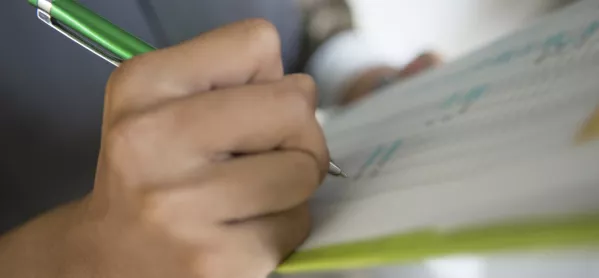‘Lesson observations can ruin teachers’ careers’
Share
‘Lesson observations can ruin teachers’ careers’
https://www.tes.com/magazine/archive/lesson-observations-can-ruin-teachers-careers

Teaching is a complex professional practice, drawing upon layers of knowledge and skill deployed in the constantly changing context of the classroom. Teachers explain, direct, listen, assess, differentiate, empathise and energise the pupils in their classes. Much of what they do is instinctive: responding to signs of frustration in one pupil; asking a particular question to another to reinforce understanding; using a wrong answer to illustrate a common misunderstanding. Teachers’ instincts are based upon their knowledge of their subjects and their experience of teaching and learning.
The Sutton Trust’s 2014 report What Makes Great Teaching? concludes that there is no framework for effective teaching that is not open to interpretation. Every recommended teaching and learning strategy could be executed well or badly and “none should be treated as a recipe or a formula”.
This is very good advice. So why is it being ignored in so many schools, where teachers remain terrified of observations conducted by untrained observers who mask their ignorance by relying on rigid lesson frameworks? In these schools, no lesson receives a good grade unless it contains a starter activity, or evidence of active learning or assessment for learning, or a plenary (take your pick, depending on the school).
Why are so many teachers demotivated by the lack of professional respect they receive from more senior colleagues? Why are so many lesson observations conducted by middle leaders who have little or no knowledge of the subject area or age that they are observing? Why do the teaching practices that are promoted leave the experts (teachers) frustrated at having to accept advice which is at best a waste of time and at worst detrimental to pupils’ learning and progression? Why are teachers being judged (and often denied pay progression) on the basis of “evidence” that is deeply dodgy?
The research is clear: when observations are used to identify “above average” and “below average” teachers (and their impact on student learning), the judgements are correct about 60 per cent of the time. This is the best-case scenario. When lesson observations are conducted by untrained teachers or leaders, using unvalidated observation protocols, with no moderation or quality assurance processes, the correlation between judgements and teacher quality is much lower.
These judgements can ruin teachers’ careers, deny them pay progression and constrain their professional autonomy. Even more damaging is the effect on morale, on teachers’ sense of professional pride and on their ability to make sensitive, appropriate decisions about their classroom practice.
This is an edited version of the complete article. To read the full story, get the 22 May edition of TES on your tablet or phone, or by downloading the TES Reader app for Android or iOS. Or pick it up at all good newsagents
You've reached your limit of free articles this month. Subscribe for £1 per month for three months and get: